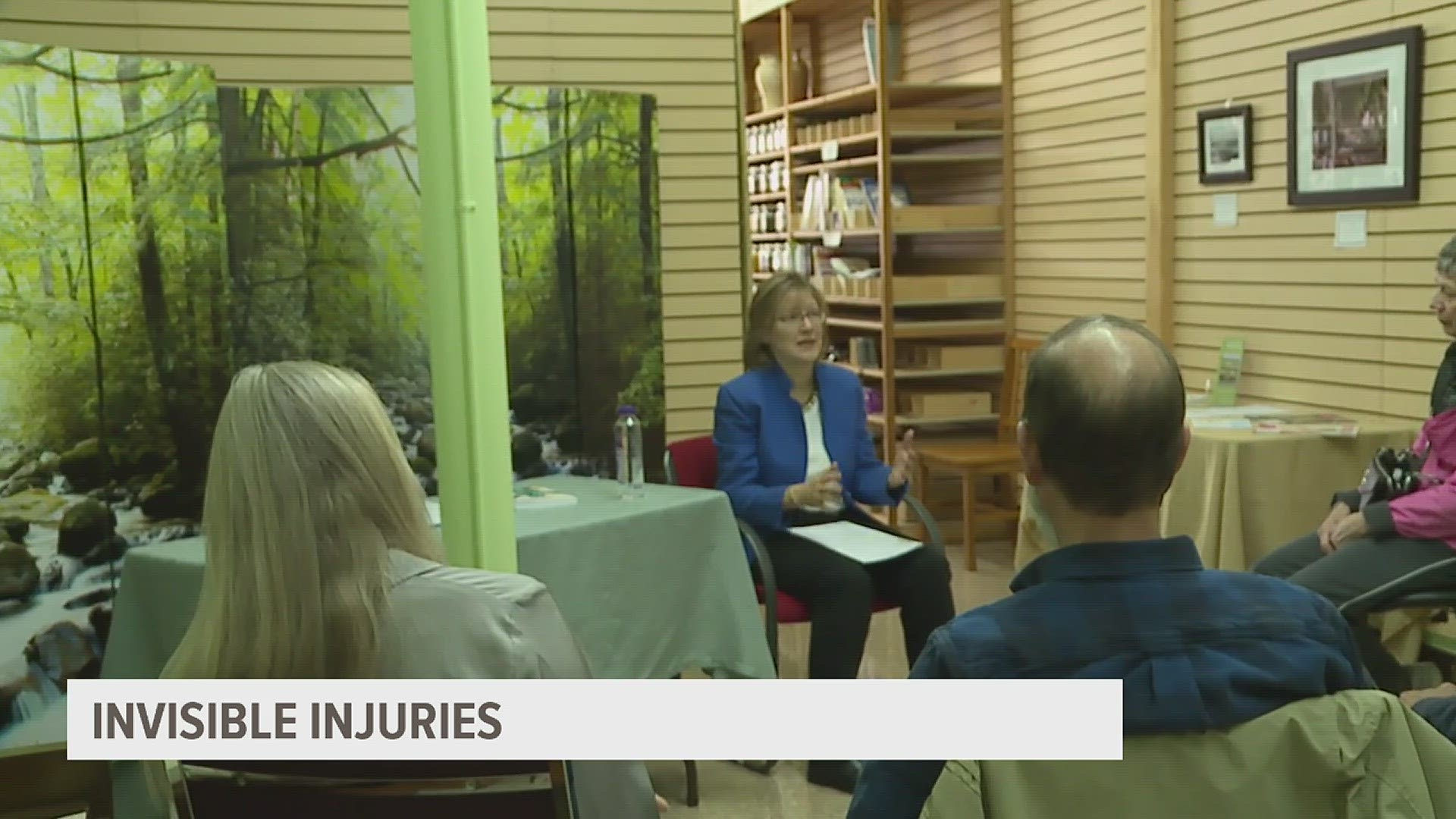HANOVER, Pa. — They're hard to see, hard to understand and often hard to talk about.
A few years ago, Hanover resident Grace Elsner was in a car accident.
She felt fine at first, telling FOX43 she'd been in worse accidents before, but over time she realized something was off.
"I didn't notice it until my eyesight started to change. The headaches got worse and the light sensitivity got incredibly difficult," Elsner said. "Within three weeks I couldn't bear direct sunlight without two pairs of sunglasses, which is not right."
Elsner later learned she had suffered a traumatic brain injury, something the CDC says about 1.5 million people survive every year.
"Mine was a concussion," she said. "There are traumatic brain injuries, unfortunately, they happen for the military, for instance. With IED's, explosions, those sorts of things, with high physical impact. There are stroke patients and survivors who deal with the same affects."
Unlike individuals with cuts, scrapes and broken bones, those suffering from traumatic brain injuries may appear fine. However, the damage is real and often lasting.
"I know people that have had TBI's and it's very emotional," said Christine Nash, co-owner of Wholly Holistic in Hanover. "They can experience depression, anxiety, changes in personality. It's things that aren't physically noticeable."
Receiving support and assistance during her own recovery, Elsner is on a mission to pay it forward.
She shared her story at Wholly Holistic in Hanover, offering resources and reading from a book of survivor stories she co-authored, entitled "Trauma to Triumph."
Elsner hopes to improve the public's understanding and promote empathy.
"A traumatic brain injury is particularly difficult to navigate, because there's a lot we don't know yet about the brain," Elsner said. "With courage and determination and compassion, we can do this together."
If you're feeling any symptoms of a concussion, Elsner encourages you to seek medical attention and talk to someone familiar with TBI.

